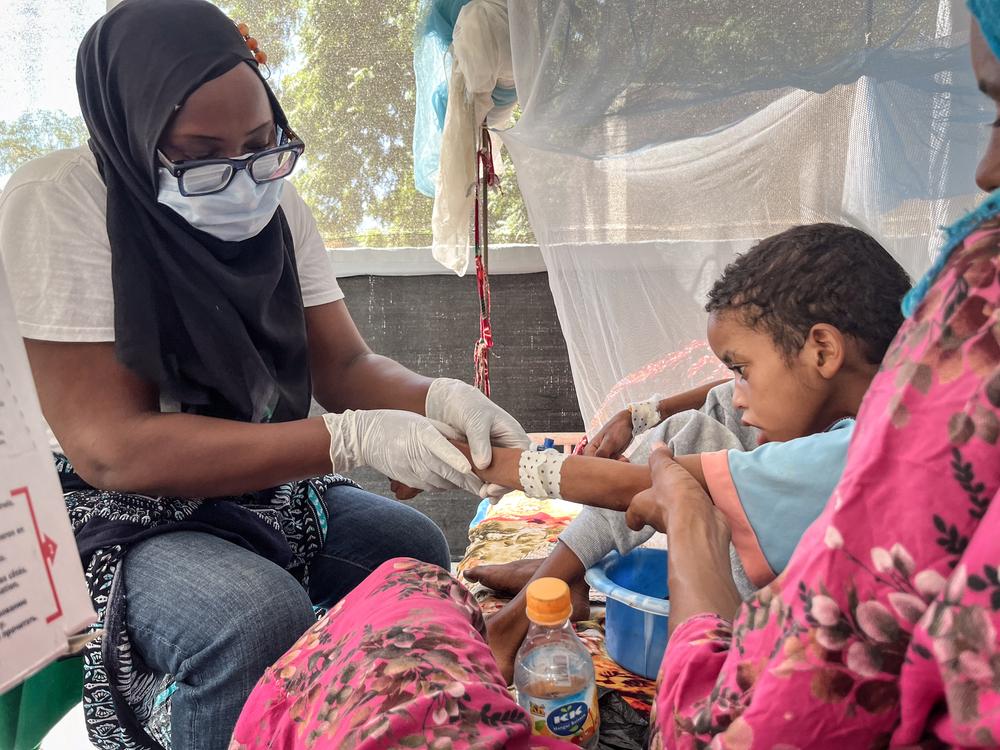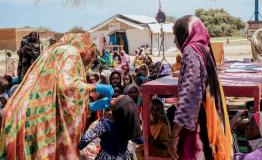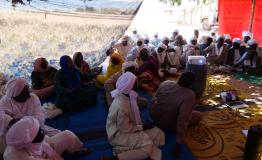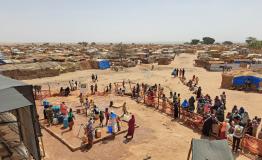On a quiet Tuesday evening, an ambulance pulls into Ati provincial hospital in Chad’s central Batha region. Inside are four members of a family with symptoms of diphtheria – an entirely preventable disease that has resurged across the country in recent years. Since July 2024, more than 2,700 cases have been reported, due in large part to low vaccination coverage and limited public awareness of the disease.
The mother and her three children have travelled 65 km over rough, unpaved roads to reach the hospital. In Chad, where motorised transport is scarce and expensive, making a journey of this length is anything but simple. Medical staff from Médecins Sans Frontières/Doctors Without Borders (MSF) are able to save the mother and two older children, but the youngest child is in a serious condition and dies a few days later.
Diphtheria is caused by a bacterium that produces a dangerous toxin. It can cause fever, respiratory distress and a swollen neck, and in severe cases can lead to organ failure and death – especially in children with pre-existing health conditions.
To help curb the epidemic and slow the spread of this disease – which was long believed to be under control in Chad – Médecins Sans Frontières/Doctors Without Borders (MSF) has been supporting Chad’s Ministry of Public Health and Prevention by treating patients for the disease, monitoring its spread and carrying out a mass vaccination campaign to prevent more people from becoming infected. The vaccination campaign was a major logistical feat, reaching around 500,000 people across two arid regions where travel is difficult, and health centres are few and far between.
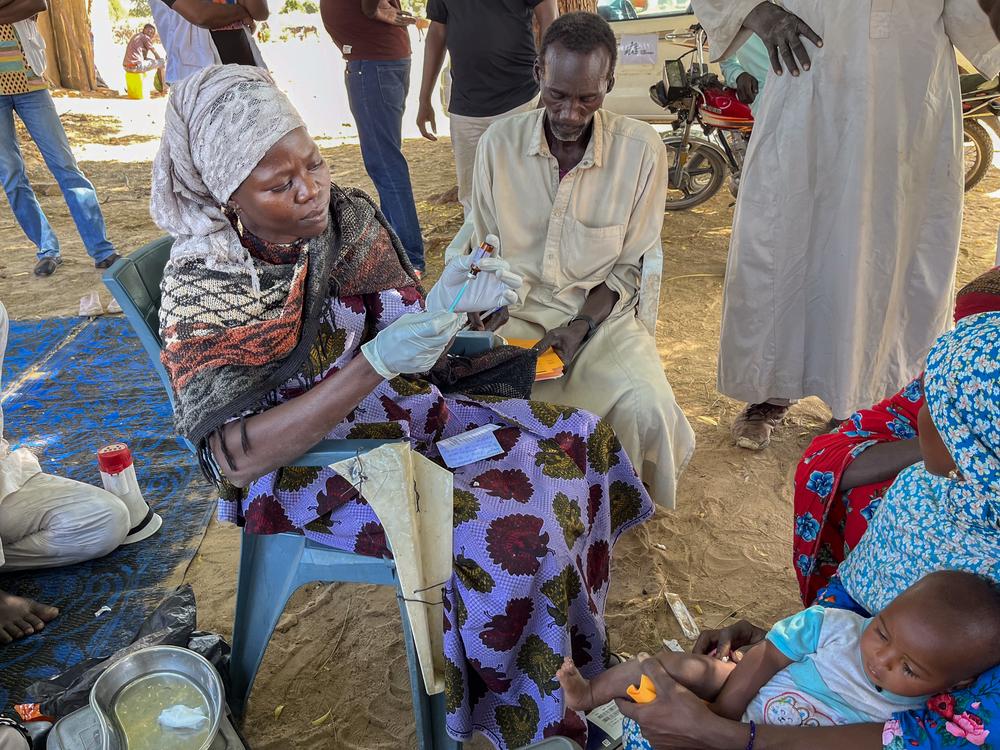
Reaching patients early
In the diphtheria treatment unit at Ati provincial hospital, 11-year-old Daoud Mahadi is slowly recovering from the disease. When his symptoms first appeared, his mother tried to treat him with traditional medicine, as there was no health centre nearby.
“We tried traditional medicine because we had no other option, but it didn’t help,” says his mother. “I watched my child grow weaker every day – he couldn’t even swallow water.” When Daoud arrived at the hospital, he was severely malnourished, weighing barely 15 kg.
The response to diphtheria in Chad comes up against a number of serious challenges, including people’s lack of knowledge about the disease, their limited access to healthcare, and the lack of treatment options.
Médecins Sans Frontières/Doctors Without Borders (MSF) teams are also working in Moussoro hospital, in Barh-El-Gazel region, where they have been treating patients and training health workers, as well as supporting peripheral health centres to diagnose and treat people with diphtheria. Since October 2024, Médecins Sans Frontières/Doctors Without Borders (MSF) teams in Ati and Moussoro have treated more than 1,600 patients, including 700 severe cases.
In parallel to its medical response, Médecins Sans Frontières/Doctors Without Borders (MSF) has rehabilitated 20 wells across Moussoro and neighbouring Chaddra districts to improve people’s access to clean water and help prevent further outbreaks of infectious diseases.
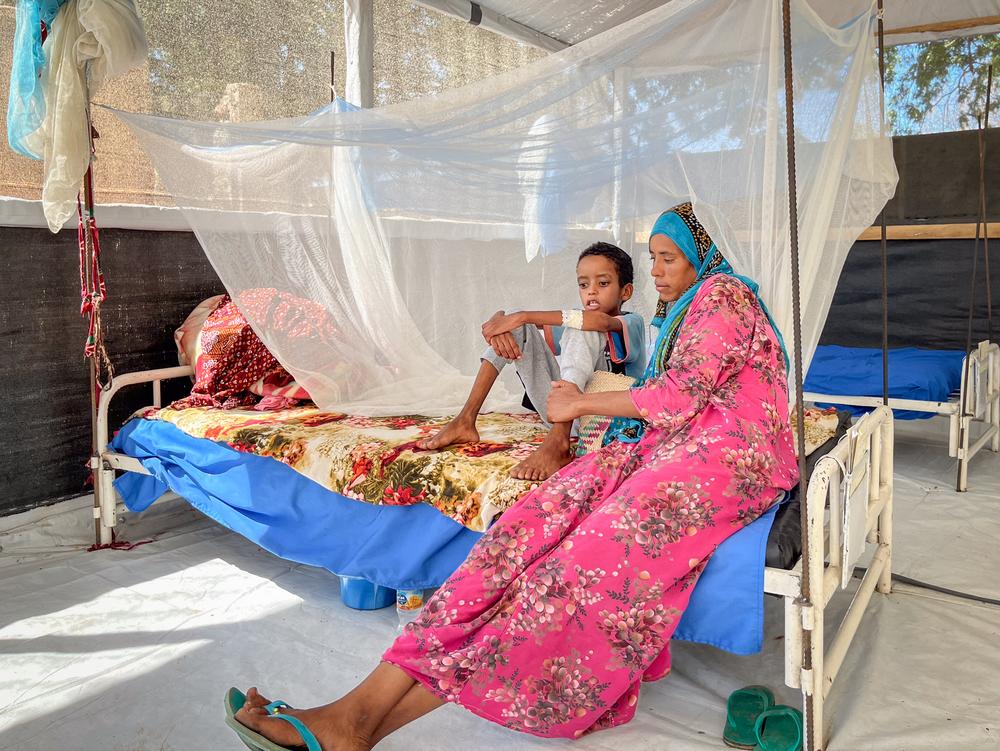
Vaccination: a logistical feat
To address the low immunisation rates that fuelled the epidemic,Médecins Sans Frontières/Doctors Without Borders (MSF) worked with the Ministry of Public Health and Prevention to run a mass vaccination campaign targeting 300,000 people in Batha region and 200,000 people in Barh-El-Gazel region. The campaign focused on reaching remote and isolated communities, including nomadic people, and aimed to deliver the two vaccine doses required for full protection against diphtheria.
Reaching these scattered communities was one of the biggest challenges of organising the mass vaccination campaign. With communities often located far apart, in areas without passable roads, Médecins Sans Frontières/Doctors Without Borders (MSF) deployed around 100 motorcycles and off-road vehicles to get vaccination teams and vaccines to where they were needed.
Diphtheria vaccines must be kept at a temperature of between 2°C and 8°C.
“Transporting vaccines while maintaining the cold chain in a desert climate where temperatures can hit 45°C is an enormous challenge,” said Jean Bourges, MSF head of mission. “This was a massive deployment effort, especially in a context where health infrastructure is extremely limited and power supplies are unreliable.”
To reach nomadic communities in Batha region and gain their trust, Médecins Sans Frontières/Doctors Without Borders (MSF) and the Ministry of Public Health and Prevention worked with the Ministry of Livestock to implement a ‘One Health’ strategy. This integrated approach – linking human, animal and environmental health – enabled teams to build up trust with nomads and vaccinate people during livestock vaccination campaigns – an initiative which significantly boosted vaccination coverage for diphtheria.

The need to remain vigilant
As early as 2023, Médecins Sans Frontières/Doctors Without Borders (MSF) warned of a resurgence of diphtheria across West Africa. Protection against this disease depends on routine immunisation programmes, which were severely disrupted after the COVID-19 pandemic, notably due to lack of funding and loss of priority.
To prevent future outbreaks, Médecins Sans Frontières/Doctors Without Borders (MSF) continues to advocate for stronger disease surveillance and more robust vaccination programmes.
